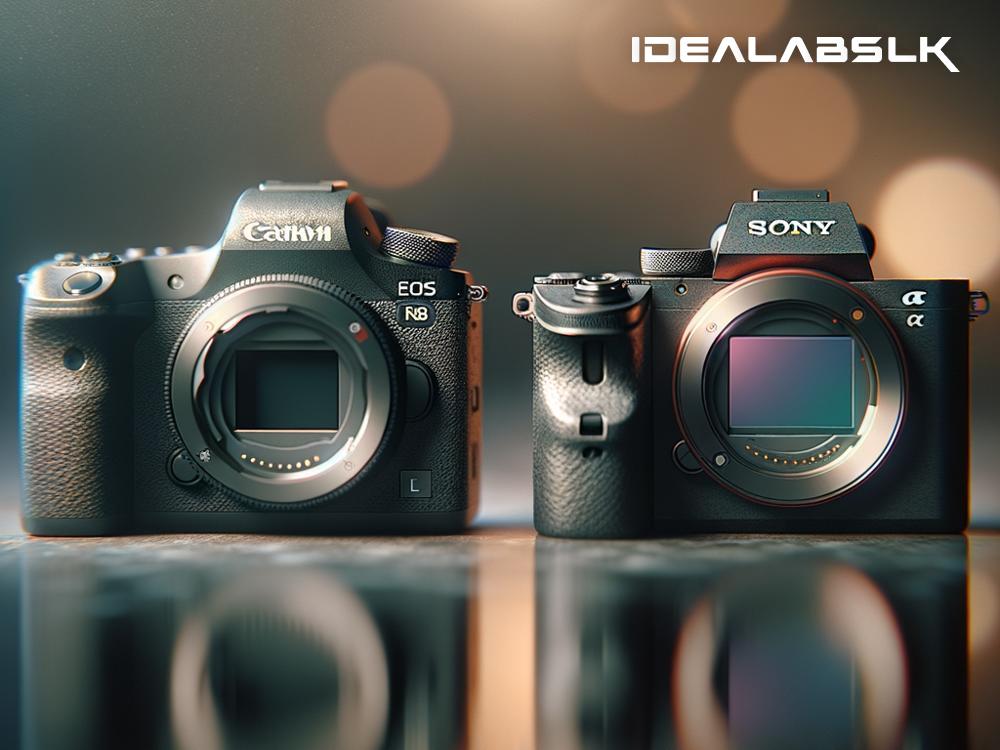Title: Canon EOS R8 vs. Sony Alpha 7C II: A Side-by-Side Comparison for Hybrid Shooters
In the world of photography and videography, hybrid shooters - those who navigate both stills and videos - are constantly on the lookout for the perfect camera that can effortlessly switch between capturing breathtaking photos and shooting high-quality videos. Two of the most talked-about cameras that promise to meet these needs are the Canon EOS R8 and the Sony Alpha 7C II. Each of these models brings something unique to the table, making the choice between them a challenge for many. Let's dive into a comprehensive comparison to help hybrid shooters make an informed decision.
Design and Portability
First off, design and portability are crucial for hybrid shooters who often find themselves on the move. The Sony Alpha 7C II, known for its compactness, is one of the smallest full-frame mirrorless cameras on the market. It's incredibly lightweight and easy to carry around, making it an ideal companion for travel photographers and vloggers. On the other hand, the Canon EOS R8 doesn’t fall far behind. While slightly larger than the Alpha 7C II, it still maintains a compact and user-friendly design. Both cameras offer a comfortable grip, but the Canon EOS R8 provides a more substantial feel, which might be preferable for those with larger hands.
Image Quality and Performance
When it comes to image quality, both cameras bring their A-game. The Canon EOS R8 and Sony Alpha 7C II boast impressive full-frame sensors, ensuring high-resolution images with excellent dynamic range. However, there are slight differences that might sway your preference. The EOS R8 tends to provide warmer tones, which many photographers find appealing for portraits and landscapes. Conversely, the Alpha 7C II leans towards cooler tones, which can be advantageous for creating moodier scenes or in post-processing versatility.
Both cameras perform admirably in low light conditions, thanks to their high ISO capabilities. Autofocus performance is top-notch on both models, with fast and reliable tracking of subjects, making them suitable for action shots and wildlife photography.
Video Capabilities
For hybrid shooters, video capabilities are just as important as stills. Here, both cameras shine, offering 4K video recording. However, the Canon EOS R8 edges ahead with its ability to shoot 4K at up to 60fps (frames per second), offering more flexibility for slow-motion footage than the Alpha 7C II, which tops out at 30fps in 4K. Both cameras support log profiles, allowing for greater creativity in color grading during post-production. Yet, the EOS R8 introduces more user-friendly features for videographers, such as a fully articulating screen, making it easier to shoot from challenging angles or when vlogging.
Lens Selection
Lens selection is another vital factor to consider. Both Canon and Sony have a wide range of lenses available for their mirrorless systems. Canon's RF mount (used by the EOS R8) is relatively new but growing rapidly, with lenses renowned for their superb image quality and innovative features, like the control ring. Sony's E-mount (compatible with the Alpha 7C II) has been around longer, offering a broader selection of lenses from Sony and third-party manufacturers. If you already own lenses from either brand, this might significantly influence your decision.
Battery Life and Other Features
Battery life is essential for those long shooting days. Here, the Sony Alpha 7C II takes the lead with slightly better battery performance, allowing for more shots per charge than the Canon EOS R8. Both cameras feature in-body image stabilization (IBIS), ensuring smoother video and sharper stills at slow shutter speeds. Connectivity options like Wi-Fi and Bluetooth are present in both models, making it easy to share images or control the camera remotely.
Conclusion
Choosing between the Canon EOS R8 and the Sony Alpha 7C II ultimately comes down to personal preference and specific needs as a hybrid shooter. The Canon EOS R8 might be more appealing for those prioritizing video features and a more significant grip, while the Sony Alpha 7C II stands out for its compactness and slightly better battery life.
Regardless of which camera you lean towards, both are exceptional tools for hybrid shooters, capable of producing stunning visuals in almost any scenario. Your best bet is to consider what aspects of photography and videography are most important to you and select the camera that aligns with your creative vision and workflow.

